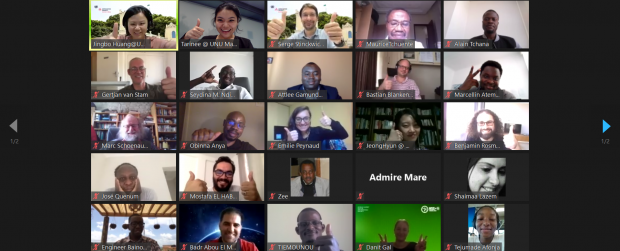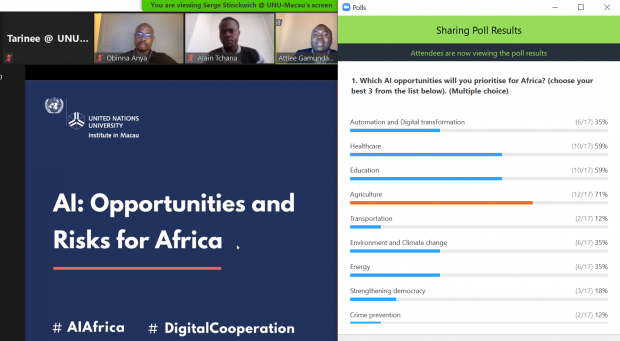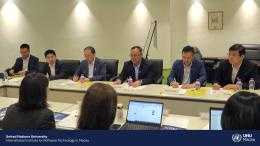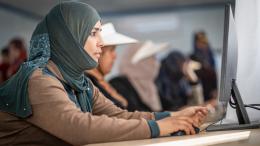Artificial Intelligence (AI) holds enormous potential in solving complex global challenges and helping accelerate the achievement of the Sustainable Development Goals in Africa. Although there are existing discussions warning against the ethical implications of AI, it is also important to dive deeper into the issue of AI implementation in the region, particularly ahead of the post-COVID19 era.
On September 29, the United Nations University Institute in Macau (UNU Macau) organized the inaugural AI expert consultation meeting titled “What’s Next for AI in Africa? The Opportunities and Challenges of Responsible AI Implementation in the Continent”. This event was organized in support of the UN Secretary General’s Roadmap on Digital Cooperation to promote multi-stakeholder efforts on global AI cooperation and establish an AI African Expert Network in the region. This expert consultation meeting brought together a total of 37 interdisciplinary researchers and ICT entrepreneurs specialized in AI in the context of Africa to discuss the practical opportunities and challenges of AI and to foster AI cooperation that is inclusive of the Global South.

Some of the main suggestions discussed in the three sessions are:
Artificial Intelligence: Opportunities and Risks for Africa
Participants believe in the potential of AI in solving complex challenges in the region. Specifically, the following poll shows the top three domains that should be prioritized in Africa according to the participants: Agriculture, Healthcare and Education respectively.

There were two major risks shared during the session. First, Africa needs to build appropriate infrastructures. Despite the fairly high penetration of smartphones in the region, Africa cannot properly deploy solutions due to the lack of local IT infrastructures, which is why using technologies such as the Internet of Things (IoT) could help build localized solutions.
Second, Africa needs more local datasets to train AI for the region. Due to the shortage of African datasets, algorithmic decision-making could result in racial and ethnic biases. Without appropriate efforts to localize AI for the region, Africa might suffer the risk of naively deploying technologies that cannot be implemented in the local context.
What kind of research or capacity building activities should be conducted?
Africa needs a wider range of disciplines in AI studies, including theories, ethics, applications, and data governance in addition to the current focus on mathematical and technical modeling. Participants emphasized the importance of academic efforts to develop teaching and learning materials on AI design, application, and implementation that is applicable to Africa.
Second, Africa needs more diverse networks to share promising research and organize capacity building activities. Participants mentioned the lack of geographical and international cooperation in Africa to invite researchers to share relevant insights among one another. The lack of cooperation also restricts the region from creating capacity building initiatives for wider disciplines. Participants also highlighted the lack of funding as one of the main causes of the aforementioned issues.
From Research to Implementation
An AI ecosystem that promotes the interlink between academia, application and platform designs was shared as one of the initiatives to promote sustainable research to implementation paradigms. The infrastructure need was also echoed during this session, with the need to consider data pipelines among other requirements. The opportunity to leverage on cloud computing was highlighted as the way to speed up implementation strategies and reduce physical infrastructure setting costs. Building a start-up culture was also noted as one of the ingredients towards converting AI research into implementation.
Artificial Intelligence poses a great opportunity for Africa as the region still lags in its human, social, and environmental development progress. However, there is still a lack of discussion on developing contextualized AI for the region. This event initiated the discussion for Africa to dive deeper into the issue of AI implementation, particularly ahead of the post-COVID19 era. Our team will follow up on this event to map the way forward to suggest policy guidance for AI in Africa and establish an AI African expert network.




